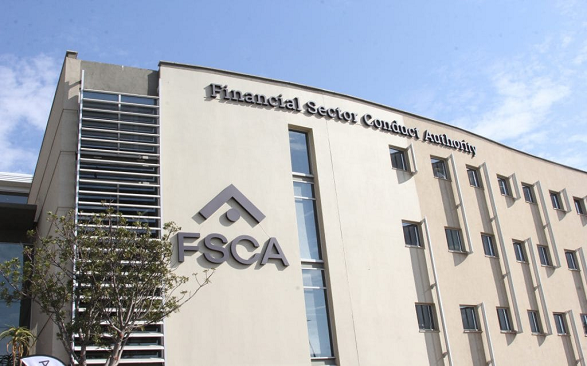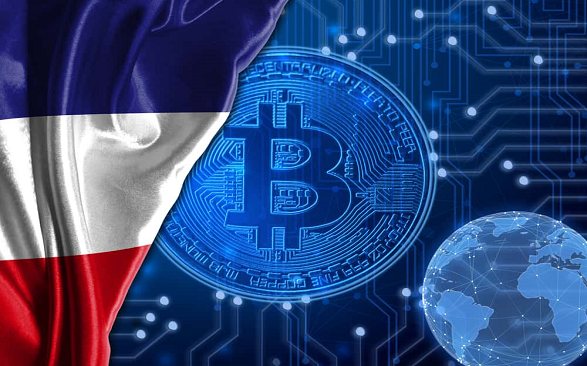Edmund Mundia
Some months ago, John Andrews, Head of Investor Relations and Capital Markets at Circle, had said that Binance settling with the United States Department of Justice (DOJ) on the criminal charges against the global digital assets exchange would be a good thing for crypto.
In November, Binance and Changpeng Zhao (CZ) settled with the DOJ. Binance pleaded guilty to criminal charges relating to money laundering and breaching international financial sanctions. For this, Binance agreed to pay $4.3bn in penalties. Personally, for failing to protect against money laundering, CZ pleaded guilty and had to pay a $50m fine. CZ also had to step down as CEO, though he remains a major shareholder. Post-CZ, will Binance “shrink” or does Binance have a bright future?
John Andrews, through his Linkedin account, shared some takeaways from the latest development.
First, Andrews pointed out that the United States has global jurisdiction on transactions in United States Dollars (USD), where criminal violations are alleged. Contrary to what many believe that as long as a crypto platform operates outside the United States, it is safe from the regulatory arms of the United States, Andrews emphasizes that a crypto platform cannot “escape US authorities (who they consider anti-crypto.)”. In Andrews’ words, “Yesterday demonstrates what TradFi has long known — the US asserts jurisdiction everywhere when criminal violations involving USD occur.”
Second, Andrews emphasizes that “the US plays hardball”. Here, Andrews tries to show that however way a crypto platform attempts to navigate the United States regulatory environment, the United States will eventually enforce its laws and regulations, resulting in unavoidable sanctions, even if these sanctions are based on settlement. According to Andrews, “Consider the DOJ/Treasury compelled CZ (Binance CEO) to leave the UAE (which commentators in crypto would continually note doesn’t have a formal extradition treaty with the US), fly to Seattle, enter a Federal Court and plead guilty to three criminal counts. CZ also had to step down as CEO from the Binance and he faces a high probability of a minimum 18 month[s] jail sentence.” Andrews added, “So much for hiding in the UAE.” Andrews went on to note that the consent Agreement signed by Binance requires Binance to exit the United States. If Binance operates in the United States, it will be forced to comply with United States regulations. Binance US will be policed by two United States independent regulatory bodies—the DOJ and the Financial Crimes Enforcement Network (FinCen). Mandatorily, KYC/AML requirements, with its attendant reporting, will have to be fully met.
Read also: What are the top 5 blockchain projects you should know?
Read also: What is BNB?
Third, “Binance will be much smaller, compliant, but will survive”, says Andrews. As far as Andrews sees this playing out, “Binance will now spend years building compliance systems, fully cooperate with the US government on ongoing investigations, and even go back 5 years and review transactions to see which should have been reported to the US (SARS)”. By US SARs, Andrews is referring to the suspicious activity reports system in the US. Andrews believe that consequently, this means “Binance will shrink’. He predicts that “a significant number of Binance customers will be off-boarded or will leave rather than be subjected to a full KYC review.”
“Why did CZ consent to this?”, Andrews asked.
“He knew the alternative was likely Binance’s destruction by aggressive US enforcement action. And a Binance collapse would have been catastrophic for crypto”, answers Andrews.
What is the key lesson?
The key lesson is moving value — in TradFi or crypto — is financial services. And financial services is highly regulated. This is not social media where Zuck’s famous refrain “move fast and break things” applied. If Facebook were a FinTech, it would probably have been shut down by a regulator years ago.
Crypto purists will object given the ideological motivation of many to create a separate and “censor resistant” form of money. However, the DOJ does not care for ideological purity if it supports criminal activity. And the crypto’s industry’s track record of flaunting basic regulations, of frauds, failures, exploits and massive losses underscore a system that ideological purity notwithstanding is not healthy and will not endure.
Whether crypto wants it or not, yesterday’s actions by the US ensure it will be dragged kicking and screaming into the compliant mainstream. I think that’s a good thing for the industry’s growth.- John Andrews– Head of Investor Relations and Capital Markets at Circle
Read also: What are the top 5 centralized crypto exchanges you should know?
Will Binance really “shrink”?
First, “Binance is no longer a baby”, says CZ, former CEO of Binance. While CZ has admitted that he “made mistakes” for which he “must take responsibility”, he also believes that its settlement with the DOJ “is best for the Binance community, for Binance, and for himself. CZ has to let it go. And that he has done, courageously, as a true leader should.
Second, Binance has immediately announced Richard Teng, its former Global Head of Regional Markets, as the new CEO of Binance. By appointing a person who is not only experienced with regulations but has a regulations background, Binance is demonstrating that it also means business. Before joining Binance, Teng was CEO of the Financial Services Regulatory Authority at Abu Dhabi Global Market (ADGM). But does this mean that Binance will only focus on regulatory compliance/ No. As CZ himself puts it, Teng “will ensure Binance delivers on our next phase of security, transparency, compliance, and growth.” Growth remains in the plan.
Third, the Binance settlement episode with the DOJ is not an FTX collapse story. Far from it. Binance is cleaning up, internally, but it plans to continue to run. In all of these, as CZ has also pointed out in his tweet on resignation day, the US government “do not allege that Binance misappropriated any user funds, and do not allege that Binance engaged in any market manipulation. Funds are SAFU!” SAFU means Secure Asset Fund for Users. One of the first in the industry, SAFU is a secure fund that safeguards users in extreme cases. SAFU wallet addresses have been publicly made available by Binance.
Lastly, Binance’s compliance journey will not start today, or tomorrow. It in fact already started earlier. Over the last 2 years particularly, Binance actually started investing significantly in its anti-money laundering (AML) compliance program, including technology and manpower in this regard. Besides, Binance’s cooperation with law enforcements globally in cases of investigations and asset recovery has gradually become one of the most responsive in the crypto space.
But what do the latest numbers say about Binance really shrinking?
According to CCData, as reported on Coindesk, in September, Binance exchange monthly spot volume fell to $114 billion. This is from about $500 billion in January. This represents a 70% decline.
In December, Binance’s market share was approximately 30%. This was 55% at the beginning of the year.
So far, overall, Binance’s market share has declined from 60% to 42%. Though Binance is losing its dominant market share presently, there has been a monthly boost to volumes on Binance since September.
Certainly, growth has not been aggressive at Binance particularly since the regulatory crackdowns deepened this year. But generally, Binance relatively enjoys a level of goodwill that it continues to leverage to maintain some level of relative stability. Noticeably, it does appear that generally the Binance community and the crypto industry believe that Binance would be all right, eventually. By the way, CZ has over the years demonstrated visionary leadership in an industry that has been described as the Wild Wild West. It will be interesting to watch how Binance fully emerges under its new CEO, Richard Teng. For the biggest exchange in the world by daily transaction volume, it strongly believes that the crypto industry and Binance have a bright future.
No doubt, Binance’s experience is a thing to learn, unlearn, and relearn from, especially for builders and innovators in the crypto industry.
Read also: Binance turbulence: CZ exit as CEO and its impact on the crypto market
Image Credit: Binance




